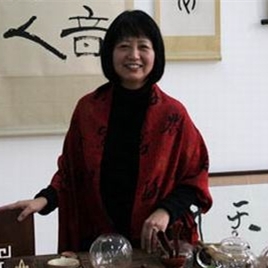Li Fengyun

Li Fengyun is the master tutor of Tianjin Conservatory of Music, the vice president of the Chinese Qin Association, the deputy director of the Guqin Professional Committee of the China Kunqu Opera Guqin Research Association, and the president of the Tianjin Guqin Association.
He has published several solo albums such as "Guangling Qin Yun" and "Mei Shaoyue"; more than ten qin songs such as "Yi Zhen", "Mei Shaoyue", "Li Sao" and "Xuan Mo"; more than 30 qin songs and scores and published a number of academic papers, such as "The Mystery of Mystery and Tuning" ("Music Exploration", No. 2, 2000), "A Preliminary Study of Zhang Ziqian's Guqin Art" ("Chinese Musicology", No. 2, 2000) , "Li Yunzhong and Tianjin Modern Qin" ("Chinese Musicology" 2007 No. 2) and so on.
In 1990, he successfully held a personal guqin concert in Tianjin. So far, nearly 100 Guqin solo performances, Xiao Shengqin rhyme, Guqin campus performances and lectures have been held. For more than 20 years, the undergraduates, postgraduates and international students taught by him have achieved gratifying results. Some students have won awards in large national competitions. In 1997, when Hong Kong returned to the motherland, he held a solo recital at the Hong Kong City Hall. In 2002, he and Dr. Wang Jianxin, a flute and flute performer, were invited to hold the "Xiao Sheng Qin Yun" concert at the Rachmaninov Concert Hall at the Moscow Conservatory of Music, and were also invited to visit Singapore, Malaysia, Japan, the United States, Poland, Ukraine, Concerts are held in Portugal, Taiwan, Hong Kong and Macau. Over the years, Li Fengyun has made important contributions to the dissemination of guqin culture. Since 1999, when he was invited by the Beijing Concert Hall to hold the "Seven Strings Poem Li Fengyun Guqin Concert", he has performed in Beijing Concert Hall, Zhongshan Concert Hall, Tianjin Concert Hall every year. The concert hall and other performances of "Xiao Sheng Qin Yun" were warmly welcomed by the audience. In 2002, Li Fengyun and Wang Jianxin performed for UNESCO experts in Beijing to declare the "World Oral Intangible Cultural Heritage" for Guqin. She also compiled the qin study diary of the late Guangling School guqin master Zhang Ziqian, "Cao Man Suo Ji"; edited and edited the manuscript "Qin History New Edition" by Mr. Xu Jian, a guqin historian, and wrote a postscript. The above two books have been published by Zhonghua Book Company.
Similar artist
Involving musical instruments
Involved portfolio
Involved news
Popular artists
- 01 Zhang Xiuyan
- 02 King Hammer
- 03 Chen Tao
- 04 Wang Yumeng (Ink Peanut Butter)
- 05 Deng Jiandong
 渝公网安备 50010702504639号
渝公网安备 50010702504639号